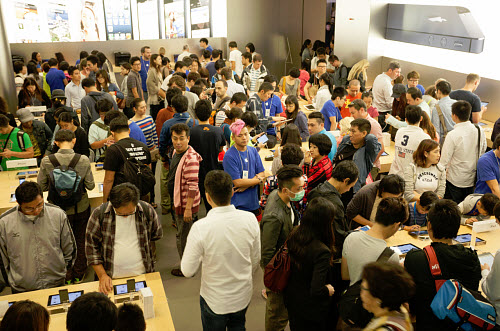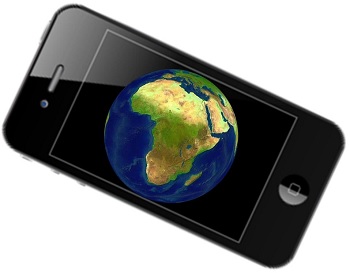A recent study has shown that 1 in 10 smartphone based ad impressions brings shoppers into stores.
A new report has been released by xAd, a mobile ad startup, that has revealed some interesting new insight into the impact that mobile marketing is having on shoppers who are being influenced by the advertising that they receive.
The report was based on a study conducted by the company, and showed that people are responding to mobile ads.
The mobile marketing study looked into the way that smartphone ads impacted store visits within the retail, restaurant, and auto industries. What it found was that connected with consumers in this way was leading to more store visits and was improving offline conversions. These findings are important because mobile marketers have been struggling to be able to measure the success of their campaigns, as many consumers do not actually make their purchases over the same device that they receive the ads. This makes conversions a challenge to measure.
The mobile marketing report from xAd was based on the results of a study that Nielsen conducted on their behalf.
 xAd brought in the expertise of Nielsen in order to both analyze and measure the effectiveness of mobile ads across 12 major brands and almost 80 individual smartphone based advertising campaigns within the retail, restaurant, and auto sectors. The report focused on the use of creative messaging and location based proximity targeting and the way that outcomes were impacted by those campaigns.
xAd brought in the expertise of Nielsen in order to both analyze and measure the effectiveness of mobile ads across 12 major brands and almost 80 individual smartphone based advertising campaigns within the retail, restaurant, and auto sectors. The report focused on the use of creative messaging and location based proximity targeting and the way that outcomes were impacted by those campaigns.
What it found was that 10 percent of the smartphone users that actually looked at a retailer’s ad on a mobile device did eventually visit the store location of that retailer. Moreover, the research also determined that 77 percent of transactions that begin over smartphones and tablets and up being completed in a brick and mortar shop.
The director of marketing at xAd, Sarah Ohle, explained that “What we’re really trying to do in this study is understand the full potential of mobile.” She added that “One of the great things about mobile is obviously that you can reach people online and have them engage you. That gets a lot of focus.” However, she pointed out that what mobile marketing is capable of doing that other past forms of media cannot is to track behavior that occurs offline.

 The mobile advertising research involved the participation of adults over the age of 18 years. There were 800 respondents in Nigeria and South Africa. The purpose of the study was to better determine the opinions of consumers with regards to the types of marketing to which they have been exposed over their smartphones. It sought to pinpoint and examine the negative perceptions that had been formed about this type of advertising in those two parts of Africa. It was conducted back in July 2014.
The mobile advertising research involved the participation of adults over the age of 18 years. There were 800 respondents in Nigeria and South Africa. The purpose of the study was to better determine the opinions of consumers with regards to the types of marketing to which they have been exposed over their smartphones. It sought to pinpoint and examine the negative perceptions that had been formed about this type of advertising in those two parts of Africa. It was conducted back in July 2014.